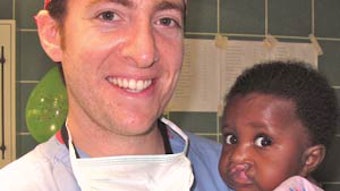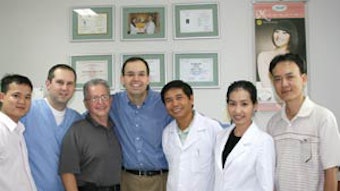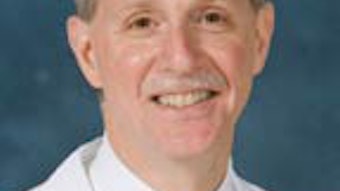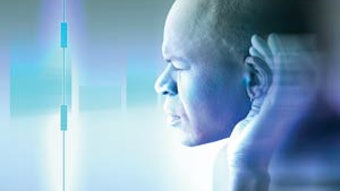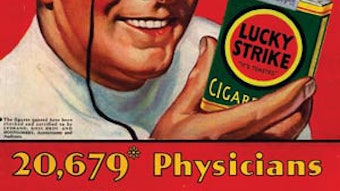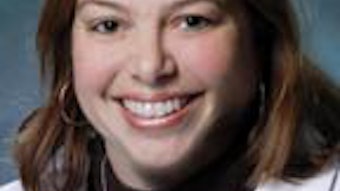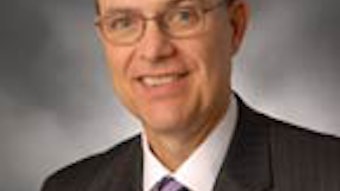Power-up of Three Major Activities
Rodney P. Lusk, MD, AAO-HNS/F President Exciting things are happening this month at 1650 Diagonal Road that reflect both a powering up of planned strategic activity and an ongoing progression to deliver quality programs and services for our members. A New Clinical Practice Guideline on Sudden Hearing Loss A new guideline on Sudden Hearing Loss is published this month in our journal, Otolaryngology–Head and Neck Surgery. This represents a big commitment by this organization to Quality with a capital “Q.” A multi-disciplinary panel that included representatives from multiple specialties and consumer groups developed the guideline. The AAO-HNSF strives to be at the forefront of guideline development and our methodology was highlighted frequently by the Institute of Medicine (IOM), last March, in its consensus report on trustworthy guidelines. A professional summary also appears in this issue of Bulletin. Our Commitment In Crossing the Quality Chasm: A New Health System for the 21st Century, the IOM calls on all healthcare organizations, professional groups, and private and public purchasers to adopt as their explicit purpose “to continually reduce the burden of illness, injury, and disability and to improve the health and functioning of the people of the United States.” Through our vision statement, “Empowering otolaryngologist–head and neck surgeons to deliver the best ear, nose, and throat care,” the Academy has indicated that delivering the highest quality healthcare to our patients is our core mission. But what does that really mean and how can the Academy support its members in providing the highest quality care in daily practice? Your Academy is committed to bringing you the resources that you need to provide safe, effective, patient-centered, timely, efficient, and equitable care for your patients. As a specialty, we must either engage in creating and implementing clinically valid performance measures or give up our ability to influence. Evidence-based products developed by otolaryngologists for otolaryngologists will be needed for our specialty to meet the demands of payers, accrediting bodies, and maintenance of certification and licensure programs, so that our members can succeed in the changing healthcare marketplace. As otolaryngologist–head and neck surgeons, we must take the lead in defining what “quality care” means for our specialty. Your Academy’s goal is to develop clinical practice guidelines and work in conjunction with national quality partner organizations to use the guidelines in development of performance measures that can apply to every practicing otolaryngologist–head and neck surgeon as quickly and efficiently as possible. On Guidelines Development The AAO-HNS published its first clinical practice guideline in 2006. Our guidelines are developed using an explicit and transparent methodology, which is documented in the Clinical Practice Guideline Development Manual (See: www.entnet.org/guidelines). Below is a list of the AAO-HNS clinical practice guidelines and a clinical consensus statement. Clinical practice guideline: Polysomnography for Sleep Disordered Breathing Prior to Tonsill-ectomy in Children – July 2011 Clinical practice guideline: Tonsillectomy in Children – January 2011 Clinical consensus statement: Diagnosis and Management of Nasal Valve Compromise – July 2010 Clinical practice guideline: Hoarseness (Dysphonia) – September 2009 Clinical practice guideline: Benign Paroxysmal Positional Vertigo (BPPV) – November 2008 Clinical practice guideline: Cerumen Impaction – September 2008 Clinical practice guideline: Adult Sinusitis – September 2007 Clinical practice guideline: Acute Otitis Externa – April 2006 World Voice Day, April 16 Other important AAO-HNS/F activities include information for members and resources to promote World Voice Day (WVD), April 16. WVD is a health observance day advocated across the globe by physician specialists who treat medical disorders that affect voice quality, and allied health providers who teach voice preservation and rehabilitation for damaged voices. The resources, available to members when they login, include a template press release to send to health reporters with media in your community and several fact sheets that were developed this year, as well as a website banner and a small poster in this issue. Every April 16, otolaryngologist–head and neck surgeons and other voice health professionals worldwide join together to recognize WVD. The observance encourages men and women, young and old, to assess their vocal health and take action to improve or maintain good voice habits. The American Academy of Otolaryngology—Head and Neck Surgery has sponsored the U.S. observance of World Voice Day since its inception in 2002. Focusing on Sleep Disorders Awareness of the serious nature of sleep disorders has become more apparent as a health concern and more diagnostic and treatment options are available. While otolaryngologists are uniquely trained to treat sleep problems, the pathway to effective treatment can be difficult for consumers to find and members to convey. At this year’s Annual Meeting & OTO EXPO, the basic and translational research mini-program will focus on sleep apnea, from bench to bedside and beyond. See article on page 28 for more information. WVD 2012 Resources March Bulletin article, “Make Your Voice Count, April 16, 2012” History of World Voice Day WVD Fact Sheet Voice Disorders and the Workplace Member Template Press Release Academy World Voice Day Press Release Voice Fact Sheets: Fact Sheet: About Your Voice Fact Sheet: The Voice and Aging Fact Sheet: Special Care for Voice Users Fact Sheet: Common Problems that can Affect Your Voice Fact Sheet: Effects of Medication on Voice Fact Sheet: Keeping Your Voice Healthy Fact Sheet: Special Care for Voice Users Fact Sheet: Hoarseness Fact Sheet: Tips for Healthy Voices How Is Your Voice? Rate Your Voice Identify Common Vocal Health Problems Vocal Warm Up – 1 Promote World Voice Day! Podcast – World Voice Day Radio PSA – “It Needs To Be Said Outloud” UIC Video for WVD – H. Steven Sims, MD, Director of the Chicago Institute for Voice Care speaks on the importance of WVD and voice care. Sample legislation and sponsor letters Join the World in Celebrating the Voice! http://www.entnet.org/HealthInformation/worldVoiceDay.cfm
Rodney P. Lusk, MD, AAO-HNS/F President
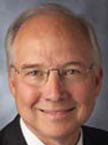 Rodney P. Lusk, MD, AAO-HNS/F President
Rodney P. Lusk, MD, AAO-HNS/F PresidentExciting things are happening this month at 1650 Diagonal Road that reflect both a powering up of planned strategic activity and an ongoing progression to deliver quality programs and services for our members.
A New Clinical Practice Guideline on Sudden Hearing Loss
A new guideline on Sudden Hearing Loss is published this month in our journal, Otolaryngology–Head and Neck Surgery. This represents a big commitment by this organization to Quality with a capital “Q.” A multi-disciplinary panel that included representatives from multiple specialties and consumer groups developed the guideline. The AAO-HNSF strives to be at the forefront of guideline development and our methodology was highlighted frequently by the Institute of Medicine (IOM), last March, in its consensus report on trustworthy guidelines. A professional summary also appears in this issue of Bulletin.
Our Commitment
In Crossing the Quality Chasm: A New Health System for the 21st Century, the IOM calls on all healthcare organizations, professional groups, and private and public purchasers to adopt as their explicit purpose “to continually reduce the burden of illness, injury, and disability and to improve the health and functioning of the people of the United States.” Through our vision statement, “Empowering otolaryngologist–head and neck surgeons to deliver the best ear, nose, and throat care,” the Academy has indicated that delivering the highest quality healthcare to our patients is our core mission. But what does that really mean and how can the Academy support its members in providing the highest quality care in daily practice?
Your Academy is committed to bringing you the resources that you need to provide safe, effective, patient-centered, timely, efficient, and equitable care for your patients. As a specialty, we must either engage in creating and implementing clinically valid performance measures or give up our ability to influence. Evidence-based products developed by otolaryngologists for otolaryngologists will be needed for our specialty to meet the demands of payers, accrediting bodies, and maintenance of certification and licensure programs, so that our members can succeed in the changing healthcare marketplace. As otolaryngologist–head and neck surgeons, we must take the lead in defining what “quality care” means for our specialty. Your Academy’s goal is to develop clinical practice guidelines and work in conjunction with national quality partner organizations to use the guidelines in development of performance measures that can apply to every practicing otolaryngologist–head and neck surgeon as quickly and efficiently as possible.
On Guidelines Development
The AAO-HNS published its first clinical practice guideline in 2006. Our guidelines are developed using an explicit and transparent methodology, which is documented in the Clinical Practice Guideline Development Manual (See: www.entnet.org/guidelines). Below is a list of the AAO-HNS clinical practice guidelines and a clinical consensus statement.
- Clinical practice guideline: Polysomnography for Sleep Disordered Breathing Prior to Tonsill-ectomy in Children – July 2011
- Clinical practice guideline: Tonsillectomy in Children – January 2011
- Clinical consensus statement: Diagnosis and Management of Nasal Valve Compromise – July 2010
- Clinical practice guideline: Hoarseness (Dysphonia) – September 2009
- Clinical practice guideline: Benign Paroxysmal Positional Vertigo (BPPV) – November 2008
- Clinical practice guideline: Cerumen Impaction – September 2008
- Clinical practice guideline: Adult Sinusitis – September 2007
- Clinical practice guideline: Acute Otitis Externa – April 2006
World Voice Day, April 16
Other important AAO-HNS/F activities include information for members and resources to promote World Voice Day (WVD), April 16. WVD is a health observance day advocated across the globe by physician specialists who treat medical disorders that affect voice quality, and allied health providers who teach voice preservation and rehabilitation for damaged voices. The resources, available to members when they login, include a template press release to send to health reporters with media in your community and several fact sheets that were developed this year, as well as a website banner and a small poster in this issue.
Every April 16, otolaryngologist–head and neck surgeons and other voice health professionals worldwide join together to recognize WVD. The observance encourages men and women, young and old, to assess their vocal health and take action to improve or maintain good voice habits. The American Academy of Otolaryngology—Head and Neck Surgery has sponsored the U.S. observance of World Voice Day since its inception in 2002.
Focusing on Sleep Disorders
Awareness of the serious nature of sleep disorders has become more apparent as a health concern and more diagnostic and treatment options are available. While otolaryngologists are uniquely trained to treat sleep problems, the pathway to effective treatment can be difficult for consumers to find and members to convey. At this year’s Annual Meeting & OTO EXPO, the basic and translational research mini-program will focus on sleep apnea, from bench to bedside and beyond. See article on page 28 for more information.
March Bulletin article, “Make Your Voice Count, April 16, 2012”
- History of World Voice Day
- WVD Fact Sheet
- Voice Disorders and the Workplace
- Member Template Press Release
- Academy World Voice Day Press Release
Voice Fact Sheets:
- Fact Sheet: About Your Voice
- Fact Sheet: The Voice and Aging
- Fact Sheet: Special Care for Voice Users
- Fact Sheet: Common Problems that can Affect Your Voice
- Fact Sheet: Effects of Medication on Voice
- Fact Sheet: Keeping Your Voice Healthy
- Fact Sheet: Special Care for Voice Users
- Fact Sheet: Hoarseness
- Fact Sheet: Tips for Healthy Voices
How Is Your Voice?
- Rate Your Voice
- Identify Common Vocal Health Problems
- Vocal Warm Up – 1
Promote World Voice Day!
- Podcast – World Voice Day
- Radio PSA – “It Needs To Be Said Outloud”
- UIC Video for WVD – H. Steven Sims, MD, Director of the Chicago Institute for Voice Care speaks on the importance of WVD and voice care.
- Sample legislation and sponsor letters
Join the World in Celebrating the Voice!
http://www.entnet.org/HealthInformation/worldVoiceDay.cfm
